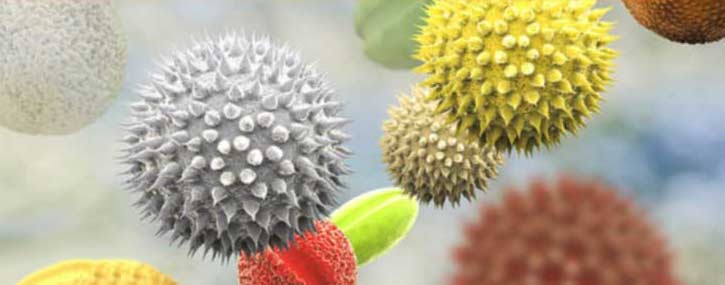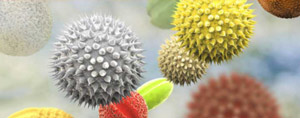Frequently Asked Questions (FAQ) of Pollen Counts in Metro Atlanta Area
We strive to deliver outstanding service to every patient, every time you visit us. We’re passionate about what we do and we’ll take great care of you. Please read through our frequently asked questions below or contact us so we can answer any other questions that you might have.


Table of Contents:
What pollen is bothering me now?
How do you measure pollen counts?
What makes pollen counts go up and down?
Pollen counts in and around Atlanta follow strong seasonal patterns. The spring starts early in the southeast and in Atlanta we may see tree pollen as early as January. Tree pollen counts primarily from Oak and Birch tend to rise to peak levels by late March into mid-April and die down by late May. It should be noted however we sometimes will have tree pollen later in the summer or even September and this is called “Fall Elm.”
Grass pollen starts in late May and is the primary allergen in the air during the summer months. It can cause very intense symptoms in certain people but is a much shorter season than tree pollen. Much like tree pollen It can cause troublesome ocular symptoms.
Ragweed and other weed pollen (sage, pigweed, yellow dock) start in late August and are present until the first or second freeze in Georgia. You can usually see the tall ragweed plants growing on the side of the highway or in abandoned lots.

Most pollen counting stations that are reported on the news or web use air volume sampling devices where the amount of pollen is measured over a period of time (usually 24 hrs.). The amount and types of pollen can be measured using these machines are highly standardized and operated by certified personnel. Usually the count reflects the amount of pollen present in the air the prior twenty-four hours.
Pollen counts tend to rise and stay elevated during warm, dry periods. Rain will bring counts down a great deal although thunderstorms and associated winds may bring pollen counts back up. The counts tend to be highest in the morning and may peak by mid-day especially for tree pollen. A warm winter may contribute to an early and prolonged spring pollen season as well.

Additional Allergy & Asthma Services
▸ Allergy Shots
▸ Allergy Testing
▸ Asthma
▸ Bronchodilators
▸ Drug Allergy
▸ Food Allergy
▸ Insect Allergy
▸ Nasal/Sinus Allergies
▸ Pediatric Allergy
▸ Pediatric Asthma
▸ Skin Allergy
▸ Spring Allergies




